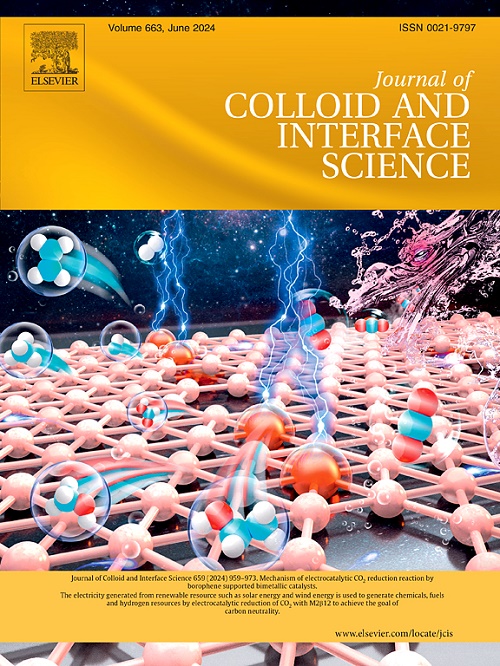Hierarchical Beta aggregates assembled from sheet-like nanocrystals: Synthesis and enhanced catalytic application in acylation and alkylation reactions
IF 9.4
1区 化学
Q1 CHEMISTRY, PHYSICAL
引用次数: 0
Abstract
The precise control of the self-assembled nano-zeolites is crucial for generating more efficient and stable zeolite-based heterogeneous catalysts, which can considerably promote the development of green catalytic processes. Herein, hierarchical zeolite Beta aggregates assembled from sheet-like nanocrystals were obtained by two-stage varying temperature crystallization of a concentrated gel containing a small amount of polyvinylpyrrolidone (PVP) additives. The introduced PVP could function as growth modifier to modulate the particle size, morphology and porosity of the zeolites. The resultant H-form Beta aggregates with high crystallinity and mesopore volume showed improved catalytic efficiency and lifetime against deactivation for the acylation of anisole with acetic anhydride and for the alkylation of benzene with ethylene. The enhanced catalytic performance could be mainly related to the improvement of accessibility of acid sites and the mass transport ability of Beta aggregates. This work demonstrates that rationally utilizing PVP modifier allows the fine control of the morphology and microstructure of zeolite Beta crystals to meet the sustainable innovation involving zeolite-based solid acid catalysis.

由片状纳米晶体组装的分层β聚集体:在酰化和烷基化反应中的合成和增强催化应用
对自组装纳米沸石的精确控制是制备更高效、更稳定的沸石基非均相催化剂的关键,可以极大地促进绿色催化工艺的发展。本文通过对含有少量聚乙烯吡咯烷酮(PVP)添加剂的浓缩凝胶进行两段变温结晶,得到了由片状纳米晶体组装而成的分级沸石β聚集体。PVP可以作为生长调节剂调节沸石的粒径、形貌和孔隙度。所得的高结晶度和高介孔体积的H-form β聚集体在苯甲醚与乙酸酐的酰化反应和苯与乙烯的烷基化反应中表现出更高的催化效率和抗失活寿命。催化性能的增强可能主要与β团聚体的酸位可及性和质量传递能力的提高有关。本研究表明,合理使用PVP改性剂可以对沸石β晶体的形貌和微观结构进行精细控制,以满足沸石基固体酸催化的可持续创新。
本文章由计算机程序翻译,如有差异,请以英文原文为准。
求助全文
约1分钟内获得全文
求助全文
来源期刊
CiteScore
16.10
自引率
7.10%
发文量
2568
审稿时长
2 months
期刊介绍:
The Journal of Colloid and Interface Science publishes original research findings on the fundamental principles of colloid and interface science, as well as innovative applications in various fields. The criteria for publication include impact, quality, novelty, and originality.
Emphasis:
The journal emphasizes fundamental scientific innovation within the following categories:
A.Colloidal Materials and Nanomaterials
B.Soft Colloidal and Self-Assembly Systems
C.Adsorption, Catalysis, and Electrochemistry
D.Interfacial Processes, Capillarity, and Wetting
E.Biomaterials and Nanomedicine
F.Energy Conversion and Storage, and Environmental Technologies

 求助内容:
求助内容: 应助结果提醒方式:
应助结果提醒方式:


